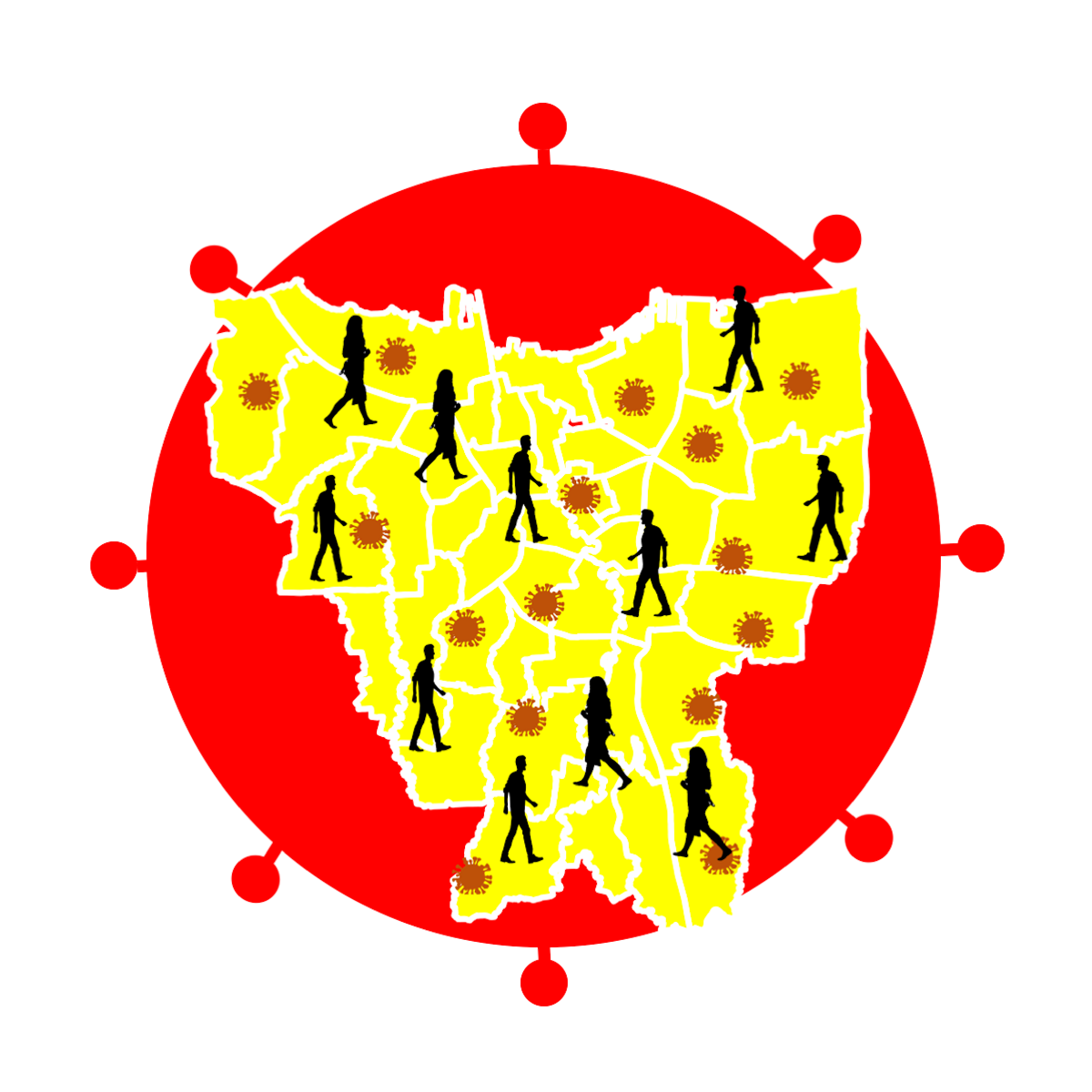COVID-19 is the most severe health crisis of the 21st century. COVID-19 presents a threat to almost all countries world-wide. The restriction of human mobility is one of the strategies used to control the transmission of COVID-19. However, it has yet to be determined how effective this restriction is in controlling the rise in COVID-19 cases, particularly in major capital cities such as Jakarta, Indonesia. Using Facebook's mobility data, our study explores the impact of restricting human mobility on COVID-19 case control in Jakarta. Our main contribution is showing how the restriction of human mobility data can give important information about how COVID-19 spreads in different places. We proposed modifying a global regression model into a local regression model by accounting for the spatial and temporal interdependence of COVID-19 transmission across space and time. We applied Bayesian hierarchical Poisson spatiotemporal models with spatially varying regression coefficients. We estimated the regression parameters using an Integrated Nested Laplace Approximation. We found that the local regression model with spatially varying regression coefficients outperforms the global regression model based on DIC, WAIC, MPL, and R2 criteria for model selection. In Jakarta's 44 districts, the impact of human mobility varies significantly. The impacts of human mobility on the log relative risk of COVID-19 range from –4.445 to 2.353. The prevention strategy involving the restriction of human mobility may be beneficial in some districts but ineffective in others. Therefore, a cost-effective strategy had to be adopted.

